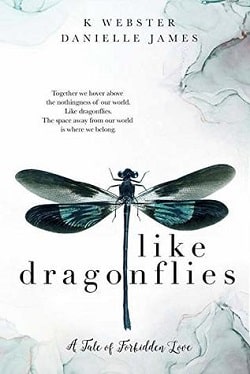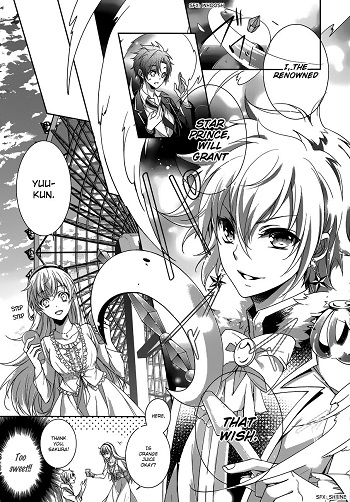Summary

Like Dragonflies
by K. Webster
I’m the good girl from Ashton Hills.
Rich. Pampered. Spoiled.
Slowly suffocating under my mother’s stifling thumb.
He’s the bad boy from Duncan.
Poor. Abused. Criminal.
Being swallowed by the darkness each passing second.
Two lost souls searching for freedom and happiness.
We’re lonely—broken—and trapped.
Until the universe brings us together.
Sometimes love is instantaneous.
A supernova collision of emotions.
Something that cannot be ignored.
As our hearts tangle to the point they’ll never be able to part, the past comes creeping up like an evil villain. The mistakes of our parents become our consequences to face.
We’re madly, deeply, foolishly in love.
Soul mates who finally found each other.
Two people who share the same father.
.
Read
Like Dragonflies on http://kissnovel.net
Martial Peak Reviews
Like Dragonflies by K. Webster is a poignant exploration of love, identity, and the haunting shadows of familial legacy. The narrative revolves around two protagonists, each representing starkly contrasting worlds yet bound by a shared, tumultuous lineage. The blurb sets the stage for a gripping tale of two lost souls—one a pampered girl from a wealthy background, and the other a troubled boy from a life of hardship and crime. This dichotomy is not just a backdrop; it serves as a catalyst for their emotional journeys and the choices they must confront.
The story is anchored in the lives of its main characters, who are both searching for freedom and happiness in a world that seems determined to keep them shackled. The female lead, a "good girl" from Ashton Hills, is suffocated by her mother’s expectations and the gilded cage of privilege. Her character is relatable, embodying the struggles of many young adults who grapple with the weight of familial expectations. K. Webster skillfully illustrates her internal conflict, making her journey toward self-discovery both compelling and heart-wrenching.
On the other hand, the male lead, the "bad boy" from Duncan, is a product of his environment—poor, abused, and entrenched in a life of crime. His character is layered and complex, representing the darker side of society that often goes unnoticed. Webster does an admirable job of humanizing him, allowing readers to empathize with his plight. The juxtaposition of their lives creates a rich tapestry of emotions, as both characters seek solace in each other amidst their chaotic realities.
One of the most striking themes in Like Dragonflies is the idea of love as a transformative force. The connection between the two protagonists is described as a "supernova collision of emotions," a vivid metaphor that encapsulates the intensity of their bond. This instantaneous love is portrayed not as a mere romantic trope but as a profound connection that transcends their troubled pasts. Webster captures the essence of young love—its fervor, its recklessness, and its ability to heal wounds that seem insurmountable.
However, the narrative does not shy away from the darker aspects of their relationship. The "evil villain" of their pasts looms large, reminding readers that love alone cannot erase the scars left by family and circumstance. This theme resonates deeply, as it reflects the reality that many individuals face—where the mistakes of parents can cast long shadows over their children’s lives. The characters must confront their shared lineage, which adds a layer of complexity to their relationship. This exploration of familial ties and the impact of parental choices is a poignant reminder of how deeply intertwined our lives can be, regardless of our attempts to break free.
Character development is one of the standout features of Webster's writing. Both protagonists undergo significant growth throughout the story. The female lead evolves from a sheltered girl into a more assertive individual who learns to carve her own path. Her journey is marked by moments of self-realization and empowerment, making her a relatable and inspiring character. Meanwhile, the male lead’s transformation is equally compelling. He grapples with his past and the darkness that threatens to consume him, ultimately finding strength in vulnerability and love. Their growth is not just individual but also collective, as they learn to navigate their relationship while confronting the demons of their pasts.
The writing style in Like Dragonflies is evocative and immersive. K. Webster employs rich imagery and emotional depth, allowing readers to feel the weight of the characters' struggles and triumphs. The pacing is well-balanced, with moments of tension interspersed with tender scenes that highlight the beauty of their connection. The dialogue is authentic, capturing the rawness of their emotions and the complexities of their interactions. This attention to detail enhances the overall reading experience, drawing readers into the world Webster has created.
In comparison to other works in the genre, Like Dragonflies stands out for its nuanced portrayal of love and trauma. While many romance novels focus solely on the romantic aspect, Webster delves deeper into the psychological and emotional ramifications of the characters' backgrounds. Readers who enjoyed novels like After by Anna Todd or The Deal by Elle Kennedy will find similar themes of love intertwined with personal growth and the struggle against external circumstances. However, Webster's unique approach to character development and the exploration of familial ties sets this book apart, making it a memorable addition to the contemporary romance genre.
Overall, Like Dragonflies is a beautifully crafted story that resonates on multiple levels. It is a tale of love that is both uplifting and heartbreaking, showcasing the resilience of the human spirit in the face of adversity. K. Webster has created characters that are not only relatable but also deeply flawed, making their journey toward healing and acceptance all the more impactful. This book is a must-read for anyone who appreciates a love story that transcends the ordinary, offering a glimpse into the complexities of life, love, and the ties that bind us.





![A Killer Paradox [Official]](/upload/pic/manga/a-killer-paradox--official-.jpg)


















Reviews 0
Post a Reviews: